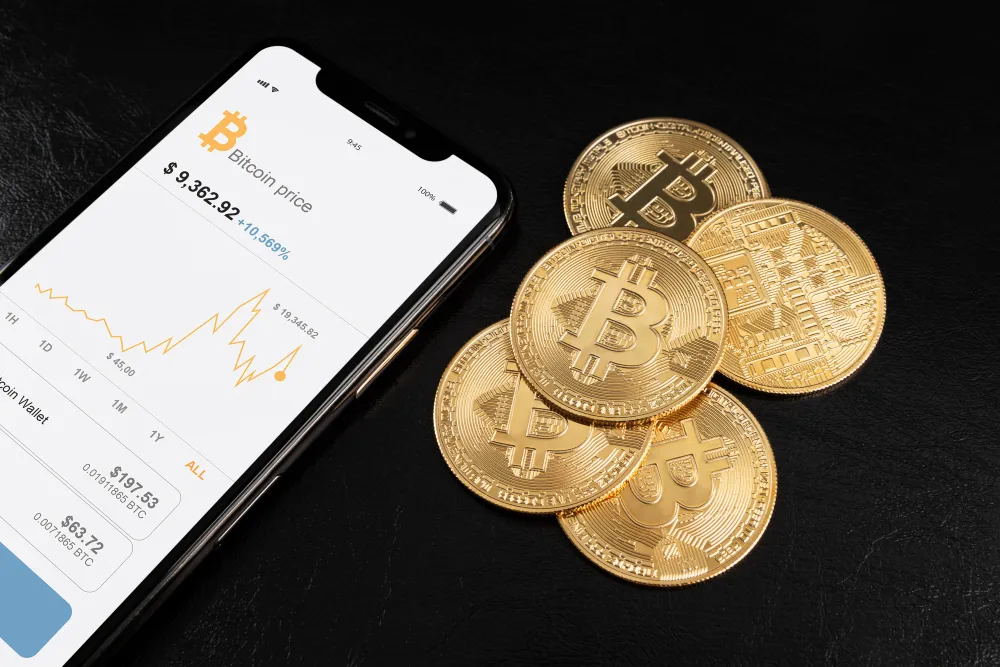Are Bitcoin and Gold Rival Stores of Value?
Bitcoin has earned a reputation as the modern gold — but is that a fair comparison? Can we genuinely equate these two forms of value?
Can Bitcoin Be Compared to Gold?
For ages, gold has been viewed as the main store of value for humanity. It’s a rare, tangible asset recognized globally as a representation of wealth and safety.

As the world becomes more digital, decentralized, and unpredictable, a prevalent question in U.S. financial discussions has emerged.
Is Bitcoin evolving into the new “digital gold”?
What Is a Store of Value?
A store of value is an asset that retains its purchasing power as time goes by.
Essentially, it holds value even in times of economic turmoil, inflation, or when trust in fiat currencies like the dollar wanes.
Regardless of global events, a store of value remains reliable and resilient—much more so than most fiat currencies.
Gold has historically played this role well. During crises like wars, recessions, or financial collapses, its value has either held firm or remained stable.
Its worth is acknowledged worldwide, and its limited availability—due to natural extraction constraints—ensures a fairly stable supply.
Bitcoin: The “Digital Gold” Proposition
Bitcoin arose as a substitute for the conventional financial framework, suggesting a decentralized structure founded on blockchain technology.
Its creator, who goes by the name Satoshi Nakamoto, introduced a limited digital currency with a cap of 21 million units.
This intentional scarcity, paired with its decentralized nature and resistance to censorship, has led many experts to liken Bitcoin to gold.
Both assets are hard to create, don’t yield passive income (like dividends or interest), and for many investors, they primarily serve to maintain value in tough times.
Recently, Bitcoin has gained traction among some institutional investors in the U.S. as a hedge against inflation.
Comparing Gold and Bitcoin
Both gold and Bitcoin feature a limited supply. Gold’s rarity arises from natural extraction limits, whereas Bitcoin’s availability is governed by a set algorithm.
Both are inherently decentralized: gold doesn’t rely on governments or financial institutions, nor does Bitcoin.
They are both considered alternative assets beyond the traditional financial system, particularly sought after during turbulent times.
Gold has always been highly liquid, while Bitcoin is increasingly traded on various exchanges and financial platforms in the U.S.
Key Distinctions
Gold has been a trusted store of value for thousands of years, while Bitcoin, just over a decade old, shows significantly higher volatility.
In brief periods, Bitcoin can fluctuate in value by 20% within just a few days.
Gold is a tangible asset that can be securely stored, whereas Bitcoin exists solely in digital form and involves technical savvy and cybersecurity measures.
Gold is well-regulated and recognized by central banks, while Bitcoin faces regulatory hurdles and uncertainties, although this landscape is changing in the U.S. with ETF approvals and more SEC oversight.
Gold serves both industrial and jewelry purposes and acts as a reserve asset for nations. Conversely, Bitcoin mainly holds value as a speculative investment or a digital store of value.
Perspectives from U.S. Investors
In the U.S., views are sharply divided. More conservative investors still favor gold as a reliable safe haven during crises.
Conventional funds maintain gold in their portfolios for diversification and stability, while younger, tech-savvy investors see Bitcoin as the digital age’s store of value.
The rise of products like spot Bitcoin ETFs, which have recently received the green light from the SEC, has significantly enhanced the accessibility and credibility of Bitcoin for everyday investors in the regulated U.S. financial landscape.
Key Factors to Consider When Investing
- Risk Profile: Bitcoin’s volatility can lead to sharp drops, while gold offers more stability but less potential for appreciation.
- Investment Horizon: Gold is usually better for short- to medium-term security, while Bitcoin might yield higher returns over the long run, albeit with more risk.
- Diversification: Experts often suggest not favoring one over the other but rather balancing both in your portfolio.





